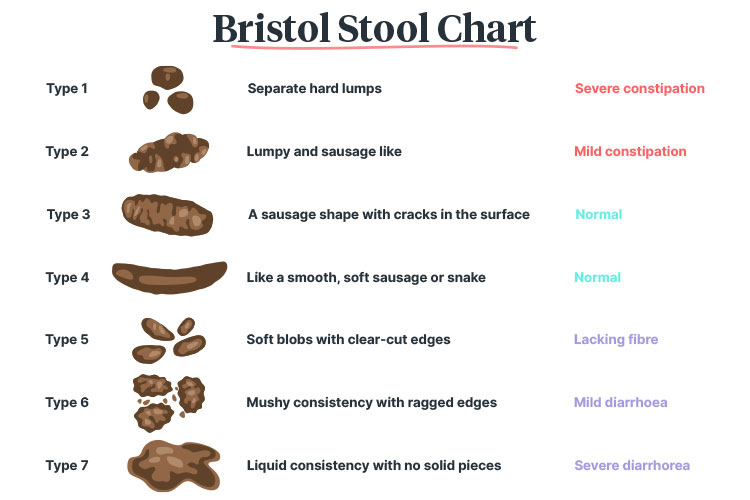Introduction
Caring for people with complicated bowel conditions can be a difficult job, particularly for those who might not have substantial medical training. The significance of recognizing these conditions is critical, not simply for the wellness of the patient yet also for the self-confidence and preparedness of the carer. This overview aims to delve into various facets of complicated digestive tract conditions, providing beneficial insights and functional suggestions to aid carers browse this tough terrain.
Understanding Complicated Bowel Conditions: A Guide for Carers
Complex bowel problems encompass a variety of disorders that affect the intestinal system, often causing considerable obstacles in day-to-day living. These problems can vary from inflammatory digestive tract diseases like Crohn's condition and ulcerative colitis to more severe instances needing medical treatment leading to stoma production.
What Is a Stoma?
A stoma is a surgically developed opening on the abdomen that permits waste to exit the body when normal digestive tract feature is jeopardized. It's vital for carers to comprehend what an ostomy requires, including its types and implications for both physical and psychological health.
What Is an Ostomy?
An ostomy refers to any operation that creates a fabricated opening in the body. It can include colostomies, ileostomies, and urostomies-- each serving different objectives based on person needs.
What Is Ostomy Care?
Ostomy treatment entails taking care of the stoma and bordering skin to prevent problems such as infections or skin irritation. This includes regular cleansing and changing of ostomy bags.
The Significance of Education and learning in Complicated Bowel Care
Educating oneself concerning intricate bowel conditions is essential for reliable administration. Training programs such as ndis complex bowel care training and stoma care training for carers give useful resources.
Overview of NDIS Complex Bowel Care Training
The National Handicap Insurance Plan (NDIS) supplies specialized training concentrated on taking care of individuals with complex needs associated with what is ostomy care bowel problems. This program helps gear up carers with needed skills.
Stoma Care Training for Carers
Stoma care training is essential in ensuring that carers are well-prepared to handle any prospective difficulties related to ostomy care. From understanding just how to alter a bag to identifying indicators of problems, this training covers it all.
Complex Bowel Treatment Course: What You Need to Know
Taking component in a detailed training course devoted to complex bowel care can boost knowledge significantly.
Key Parts of a Complex Bowel Care Course
Understanding Anatomy: Understanding gastrointestinal anatomy assists in understanding how various problems affect bodily functions. Recognizing Symptoms: Recognizing signs early can bring about prompt interventions. Nutritional Guidance: Understanding nutritional effect on digestive tract health and wellness is essential. Psychosocial Support: Addressing the psychological wellness facet of living with a complex condition is equally important.Bowel Care Administration Techniques
Proper bowel care management strategies can significantly improve lifestyle for both patients and carers alike.

Daily Monitoring Protocols
Establishing day-to-day routines that include monitoring defecation can help recognize abnormalities very early on.
- Regularly check stoma sites. Keep track of dietary intake. Monitor hydration levels.
Emergency Procedures
Knowing what steps to take during emergencies-- like indicators of blockage or severe discomfort-- is crucial.
Remain calm. Assess symptoms. Contact health care specialists if necessary.Understanding Stomas: Kinds and Functions
Not all stomas are created equivalent; recognizing their types assists tailor care approaches effectively.
Colostomy vs Ileostomy vs Urostomy
|Kind|Description|Waste Kind|| ------------|---------------------------------------------------|--------------|| Colostomy|Created from colon; generally much more developed stool|Solid waste|| Ileostomy|Developed from ileum; normally fluid waste|Fluid waste|| Urostomy|Reroutes pee from kidneys|Urine|
Challenges Encountered by Carers in Taking Care Of Complex Digestive Tract Conditions
Carers usually deal with one-of-a-kind challenges when managing a person's complex bowel condition.
Emotional Concerns and Stress and anxiety Administration Techniques
Caring can be psychologically taxing; it's important that carers practice self-care strategies such as:

- Engaging in hobbies Seeking assistance from peers Regularly communicating feelings
Physical Needs on Carers' Bodies
Lifting individuals or aiding with wheelchair can take a toll literally; strategies like appropriate training techniques ought to be practiced regularly.
Nutrition's Duty in Digestive tract Health And Wellness Management
Diet plays a considerable role in handling complicated bowel conditions effectively.
Balanced Diet regimen Considerations
High-fiber foods promote regularity. Stay hydrated. Limit refined foods.Special Dietary Requirements Post-Surgery
Patients might call for unique diets after surgical treatment:
- Low-residue diet regimens initially Gradually reestablishing fiber
FAQs
What sort of training do I need as a carer?- Enrolling in programs like NDIS complex bowel care training or stoma care training will offer important expertise and skills needed for effective caregiving.
- Typically every 3-7 days, depending on the person's situation, but constantly consult medical care professionals for customized advice.
- Yes! Specific foods might cause obstructions or extreme gas; it's important to check nutritional consumption closely.
- Absolutely! Emotional well-being greatly influences physical health and wellness results; guarantee open communication regarding feelings.
- Yes! Skin irritation or infection can happen if not appropriately looked after; regular examination is crucial.
- Look right into neighborhood workshops, online courses like complex bowel care courses, or support groups focusing on ostomy care administration strategies.
Conclusion
Understanding complex digestive tract conditions is imperative not only for boosting patient end results yet likewise equipping those that offer care daily. By participating in continual education and learning through programs such as NDIS complex bowel care training or specialized stoma care training, carers establish abilities vital for effective management techniques while fostering encouraging atmospheres for healing and recovery.
This overview has actually covered different aspects-- from standard meanings regarding stomas and ostomies via dietary factors to consider-- to addressing emotional concerns encountered by caregivers themselves-- all focused on equipping you with expertise needed when browsing this diverse topic effectively!
By welcoming education and learning and fostering solid interaction in between patient-carer partnerships, we create pathways towards improved quality of life-- one action at a time-- in understanding these detailed intricacies bordering bowels!